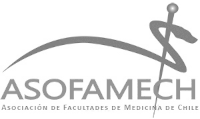General indications
The publication of the results obtained through research in health sciences education is a fundamental activity of any scientific research since it is the only means of sharing and submitting the results obtained for critique by the national and international scientific community.
Researchers should strive to publish the results and interpretations of their research in an open, honest, transparent, and accurate manner, including those results that are not in line with the hypotheses or assumptions made. If a publication requires fragmentation of parts of the same work, it is only acceptable for reasons of length or at the request of the editors.
The results obtained within the framework of a contract/agreement signed with public or private entities will be published per the stipulated clauses and always in line with the aforementioned.
In the event that errors are detected in the content of any publication, they must be acknowledged in publications of the same standard. Retraction of the publication is necessary in the case of serious errors.
Authorship of publications
To be an author of a publication, it is required to have participated in the proposal and design of the work, to have carried out the experimental part of it, or to have analyzed and interpreted the results and their discussion based on national and international references of the last five years. All researchers who have participated significantly in the work must be listed as authors of the publication to which the work gives rise.
In this journal, the agreements of the WMA Declaration of Helsinki (2017) will be respected, and Article 36 of the document will be particularly relevant:
“”Investigators, authors, editors, and publishers all have ethical obligations concerning the publication and dissemination of the results of their research. Investigators have a duty to make the results of their research on human subjects publicly available and are responsible for the integrity and accuracy of their reports. All parties must accept the ethical standards of reporting. Negative, inconclusive, and positive results should be published or otherwise made publicly available. The source of funding, institutional affiliations, and conflicts of interest should be disclosed in the publication. Reports on research that do not adhere to the principles described in this Declaration should not be accepted for publication” (Declaration of Helsinki 2017).




